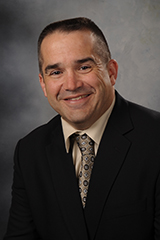September 10, 2019
My Cousin

My cousin, Amy Rountree, has a blessed life. She had a distinguished basketball career capped off by playing for Lee University. She has a great son, a close knit family bond with her mom and aunts, and she loves her constant K9 companion, Ally. She is a very positive person.
I have always felt a special bond with Amy. We were born on the same day, albeit she was born more-than-a-few years after me. We both love women’s basketball and dogs. We both became coaches and educators, although she is way better than I am at both. She became a high school wellness and physical education teacher and is affectionately called “Ms. Tree” by her students. We both believe that to connect with your learner, you have to know and understand them. I smiled and nodded appreciatively one time when she posted “Before Bloom you have to Maslow” on Facebook. If you do not get that one, look up Bloom and Maslow.
A few years back Amy developed a multitude of symptoms that was eventually diagnosed as Huntington’s Disease. According to the Huntington’s Disease Society of America, this genetic disorder simultaneously exhibits symptoms similar to ALS, Parkinson’s and Alzheimer’s. It causes a progressive breakdown of nerve cells that lead to a decline in the person’s physical and mental abilities. Such symptoms can include unsteady gate and involuntary movements (causing some to call Huntington’s the Dancing Disease), slurred speech, weight loss, difficulty in swallowing, forgetfulness, impaired judgement, personality changes, mood swings, and depression. The symptoms generally appear between the ages of 30 to 50. There is no cure.
Amy being Amy, she has maintained a positive attitude despite the prognosis. Always the educator, she has posted a lot on social media to help people learn about this horrible condition. Sometimes she posts facts about the condition. Sometimes she posts about what she is going through on that particular day. Sometimes she posts about what she is doing despite her condition.
One such time was when she visited and shot hoops with her beloved Tennessee Lady Vols. There she was at the three point line. Her body moving and dancing uncontrollably. The team’s star center was under the basket ready to shag rebounds for her. Amy’s first shot misses. The rebounder passes the ball back to her. Her mind and body suddenly remembers back to her college days and recognizes what to do. Her body quickly and amazingly steadies. She seamlessly and effortlessly catches the ball and launches another three pointer. Swish. She unsteadily moves to the next spot on the three point line. Her body steadies as the ball is passed to her. She catches the pass from the rebounder and effortlessly launches another three pointer. Swish. This continues again and again. With each shot, the Tennessee Lady Vol player shakes her head in amazement as she dutifully shags the rebounds and passes Amy the ball for the next three pointer.
These occasional respites from the symptoms of the condition are all too occasional and brief. Despite trying hard to prolong her education career as long as possible, Amy had to retire from teaching. The only time I ever witness Amy feeling low about her condition is when she reflects on not being able to teach. At the start of this school year, she posted “I miss work so much!!!!!!!!!!” She misses connecting with her students. She misses collaborating with her colleagues. She misses watching her students grow through the power of learning. She misses enabling them to do so.
Sometimes we let the unpleasant and difficult aspects of our careers get to us. Sometimes we even want to throw it all away and just quit. Occasionally feeling this way is totally natural and understandable. Nevertheless, when we do so, we are letting the “yucky” stuff overshadow what is truly awesome about our careers.
When you are feeling low about your work, remember, we get to enable people to improve their lives through the powerful gift of education! It is the essential core of what we do and who we are. Some of us – agents, specialists, program managers/assistants, and volunteers (to name just a few) – do this directly. Others – administrators, office professionals, accountants, custodians, and volunteers (to, once again, name just a few) – do this by facilitating our direct educators in a myriad of ways. Nevertheless, we all empower the people we serve through education. Is there a better calling in the world? I think not.
Next, think of Amy, all of our colleagues, and other educators who have had their educational careers tragically cut short by the ravages of disease, injury, or death. Most if not all of those individuals would give anything to have just one more day to pursue their educational calling. One more day to see a learner finally “get it.” One more day to work as a team with their colleagues. One more day to see a learner improve their life and become a more competent and confident contributor to society. One more day to make a difference in the lives of others.
Puts it all in perspective, doesn’t it?